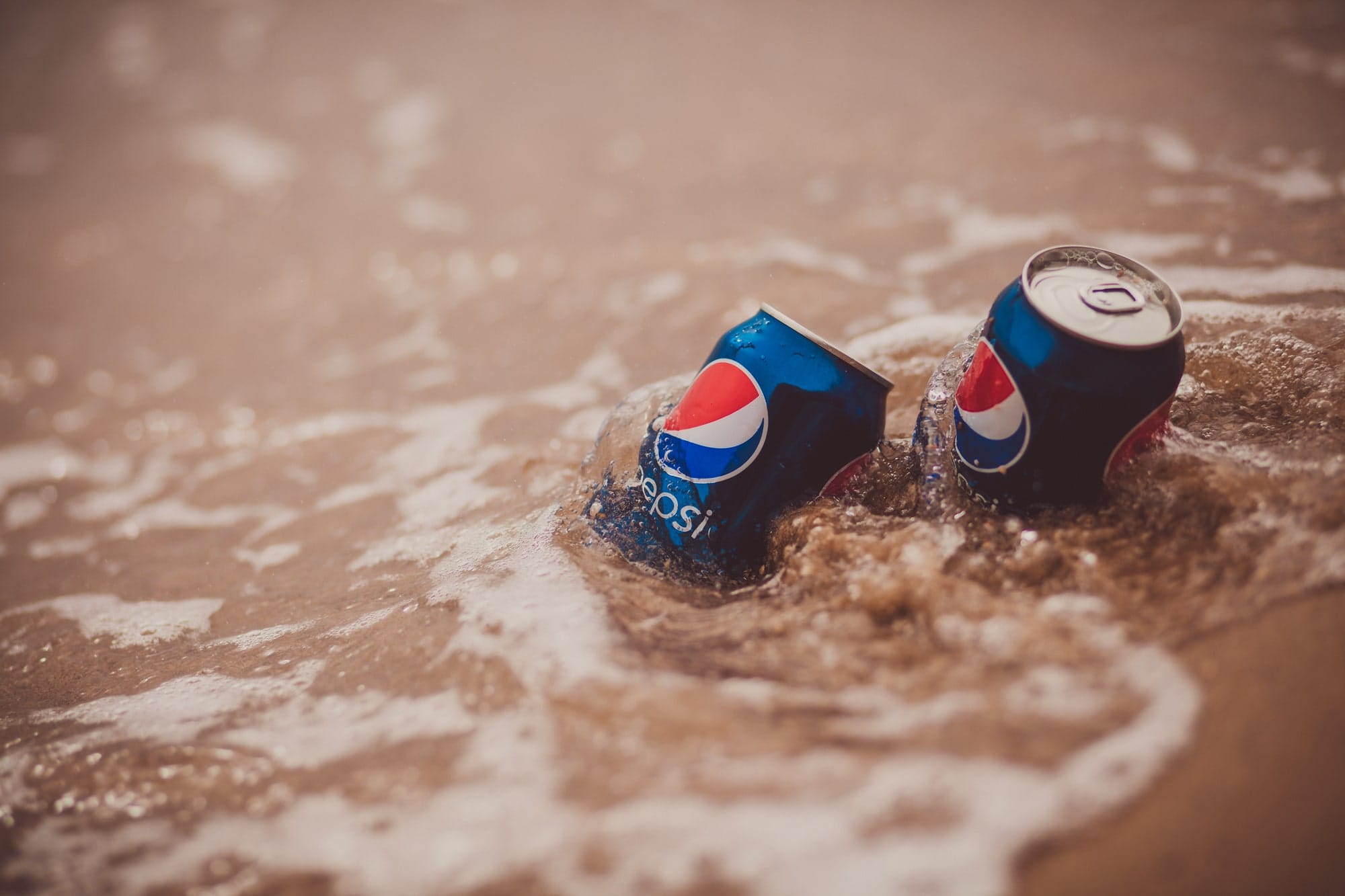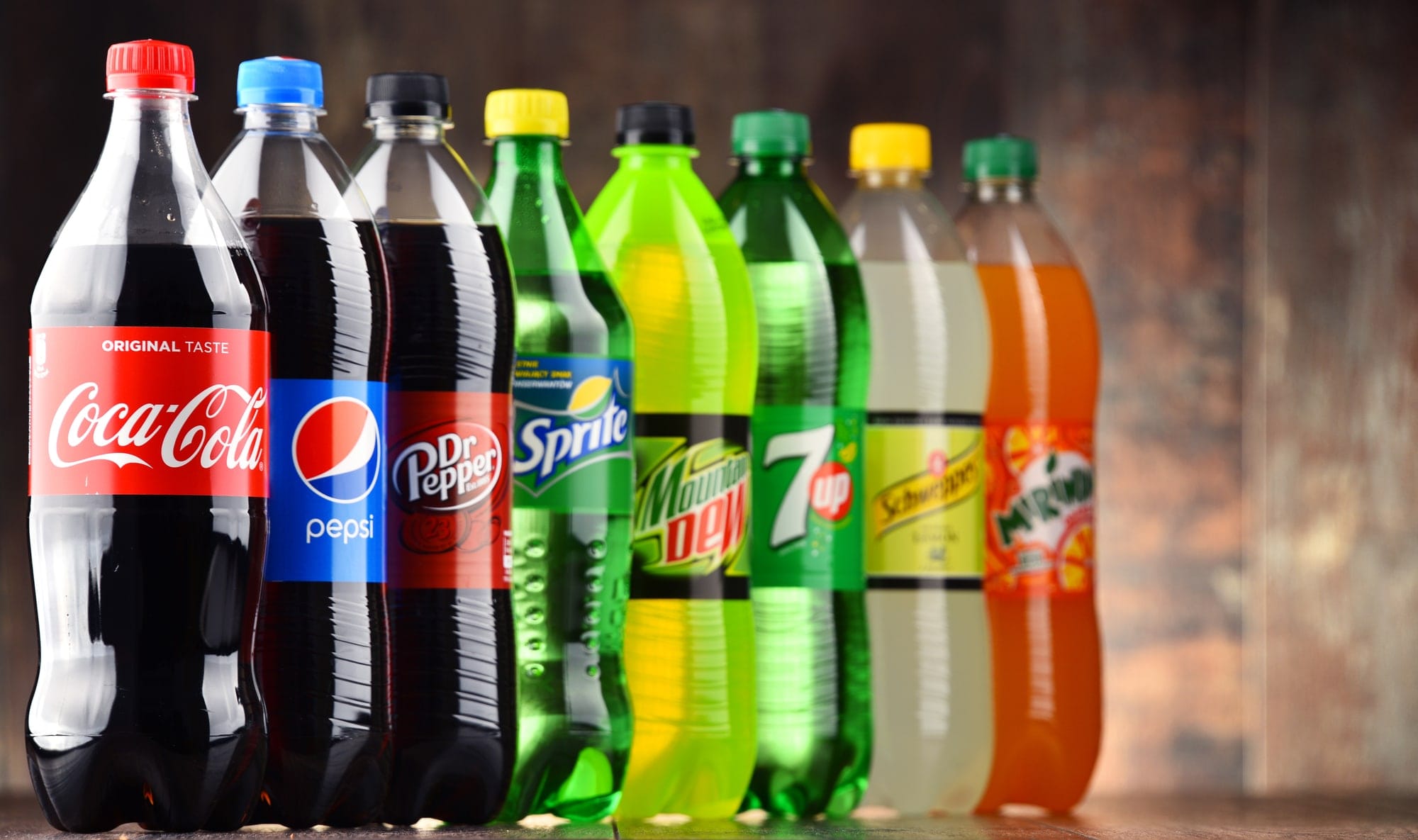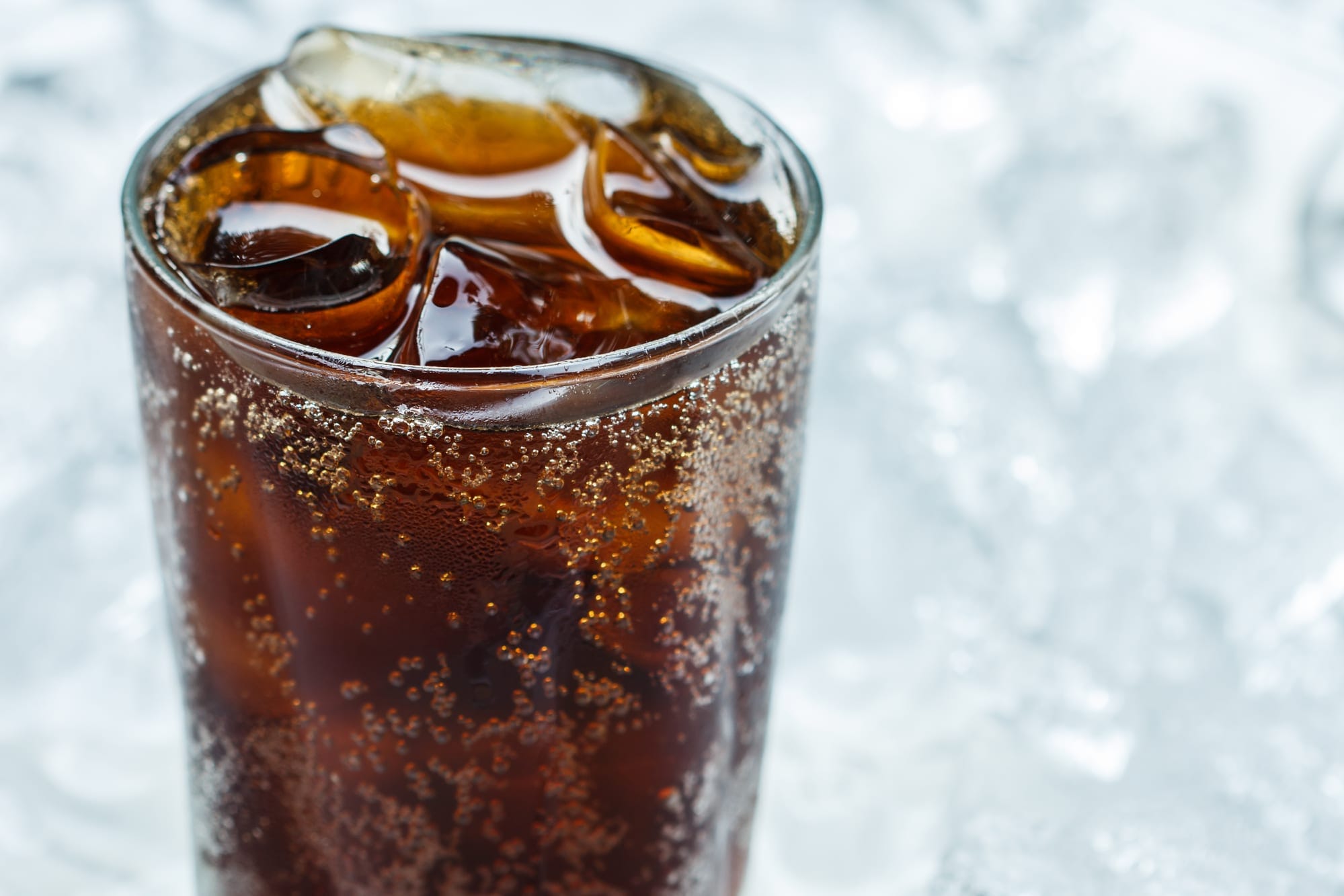PepsiCo has dozens of products under their belt. You can buy these products here in the United States or venture across the world and grab a bottle in Japan. So, anyone who hasn’t heard of the PepsiCo brand has likely been living under a rock.
This SWOT analysis of PepsiCo examines what the company does well, what it’s falling behind on, and what this will mean for the brand. We’ll start first by discussing PepsiCo’s gigantic portfolio of products. It’s unlike any other.
PepsiCo SWOT Analysis: Strengths
A massive portfolio.
PepsiCo has a steady portfolio of more than 100 different brands. The company dominates the snack, food, and beverage industries. In terms of earning, PepsiCo is only second to Nestle. It’s achieved this level of growth because of the many brands under their belt.
In 2017, 22 out of the 100 different brands brought in $1 billion USD. Many others bring PepsiCo at least $500 million USD in revenue.
Some of these brands include:
- Pepsi
- Lays
- 7UP
- Quaker
- Lipton
- Tropicana

Although the brands are part of the food industry, no other company offers as much versatility as PepsiCo’s. Customers can get a little of everything. And that leads PepsiCo to easily satisfy consumer needs. Why bother going anywhere else when you can find nearly any beverage or snack under PepsiCo’s umbrella?
If you don’t want Pepsi, you can reach for 7UP. If you want something sweeter, reach for Lipton. Want a crunchy snack? You have Lays. But if you want something healthier, sub in Quaker products.
This is how a brand dominates an industry while still providing options to their customers.
Brand recognition.
And since PepsiCo owns some of the most popular food, beverage, and snack brands, it’s transformed into a globally recognizable brand. Each brand is worth millions to billions of dollars. And they fall under PepsiCo, pushing the company’s net worth into the billions.
Endorsements and sponsorships.
PepsiCo also uses brand endorsements to push their products. The company is strongly tied to music concerts and sporting events. Major sports teams are currently sponsored with Pepsi products. This makes it easier for PepsiCo to reach younger audiences, which also happen to be PepsiCo’s target market.

PepsiCo SWOT Analysis: Weaknesses
Coca-Cola rivalry.
PepsiCo has always had a rivalry with Coca-Cola products. In many cases, they’re each other’s only competition. It leaves little room for other companies to come in. Because most other companies don’t have the funds, resources, and reach that these two do.
The health crowd.
However, PepsiCo faces problems in the health community. Many of the products offered are high in sugar and calories. The soda beverages are connected to the growing obesity rates and related health conditions, like type 2 diabetes. Although PepsiCo has created more health-conscious choices, such as diet Pepsi and Pepsi zero, the company continues to push their unhealthy food formulas more often to the public.
In only one industry.
PepsiCo offers 100 brands of products. However, they’re only in the food industry. It’s smart to offer so many choices in one industry. But it’s still basically putting all their eggs in one basket. If competitors like Coca-Cola decide to move into other industries, PepsiCo will find themselves scrambling to keep up.
Failed products.
You also can’t reach the size and revenue of PepsiCo without a few failed products along the way. If those failed products harm the company’s brand image, then there’s a problem. This is exactly what happened with the Crystal Pepsi product.
Poor sponsorship ideas.
PepsiCo also hands out sponsorships. But if they’re endorsed by the wrong celebrity, the repercussions could lead the company in hot water. Consumers are vocal on social media — especially when they don’t like or agree with a celebrity. If PepsiCo products are close to a celebrity scandal, it could negatively impact their brand image too.
PepsiCo SWOT Analysis: Opportunities
Health product diversity.
PepsiCo doesn’t offer the most healthy products. That doesn’t mean they can’t, though.
The company can easily work on alternatives to make the health-conscious crowd happy. It’s also another way for the brand to diversify itself in the food and beverage industry. For instance, they have flavored 7UP with Stevia, a sugar replacement. The company should look at ways to incorporate healthier substitutes in their food, drinks, and snacks. As well as make fully new healthy products, similar to diet Pepsi.

Move into other industries.
However, they should also work to move out of this industry, and into others. Diversity is how brands thrive. It’s an opportunity for PepsiCo to make headway in industries that their competition hasn’t yet. PepsiCo has the funds, clients, and talent to achieve it.
Lack of drink flavors.
Oddly enough, PepsiCo doesn’t focus too much on the flavors of their drinks. For Pepsi, that’s to be expected. The original flavor is iconic. And they have done renditions of this flavor, like Pepsi Wild Cherry and Pepsi Blue. However, these are just slight changes to the original taste — not a complete overhaul. It may be worthwhile for the company to bring in flavors like Mango and Strawberry.
PepsiCo SWOT Analysis: Threats
Nestle as a competitor.
Obviously, PepsiCo’s main competitors are their biggest weakness. This includes Nestle and Coca-Cola. These two brands have the buying power and brand recognition to compete head-to-head with PepsiCo. Nestle is the lead competitor, considering they beat PepsiCo’s earnings in 2017. But it’s not just direct companies PepsiCo needs to watch out for.
Not enough health alternatives.
PepsiCo has trouble standing against the health industry. As said earlier, many of PepsiCo’s brands are relatively unhealthy. Either they’re high in calories, sugar, or both. These days, people are more likely to reach for something sweet but lower calorie than a soda. In fact, PepsiCo has witnessed a decrease in soft drink sales recently. It’s likely to continue to fall as the years press on.
A bad economy.
The economy and the possibility of recessions will always be a threat to PepsiCo. When the economy dips, people are more likely to save their dollars for necessary purchases. Unfortunately for PepsiCo, most (if not all) of their products fall into the “not necessary” label. And since PepsiCo hasn’t branched out of the beverage and food industries, there’s little they can do in this situation.
Make sure to check PepsiCo PEST analysis, now.










